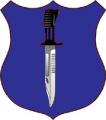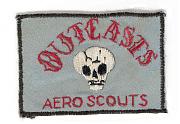Studying a Wrist Watch: the U.S. Military and COIN
--------------------------------------------------------------------------------
Although some may say that reviewing an already widely acclaimed book is a waste of time, I decided to do just that. Lieutenant Colonel John Nagl's book Learning to Eat Soup With a Knife: Counterinsurgency Lessons from Malaya and Vietnam is a work of inspiration and despair. The inspiration is easiest to accept and digest because it seeps through this work at many levels. Nagl as a serving officer and a scholar is inspiring because this book pulls no punches. His examination of the British experience in Malaya inspires simply because he shows a military can indeed learn and adapt to meet and defeat an equally adaptive threat if its leaders allow it to do so.
So why do I offer despair as a companion to Nagl's inspiration? Well to begin with I lived the Army that came out Vietnam; my leaders in rebuilding that Army all were Vietnam veterans. I remember well General DePuy's role as commander of Training and Doctrine Command; a comrade of mine, Paul Herbert, wrote a great monograph on that subject . I also vividly recall a parody of a debate between Colonel (ret) Harry Summers and Major Andrew Krepinevich over what happened in Vietnam, what could have happened in Vietnam, and what should have happened in Vietnam. As a stage hog, Harry Summers won by overwhelming Andy Krepinevich's scholarly delivery with bluster and bravado. Neither Summers nor Summers' admirers did cared a whit about the message Krepinevich offered; they cared about preserving the Army's capacity to wage Jomini's battle of annihilation. They were seemingly validated in 1991 and again in March 2003. The big battalion Army marched on.
It did so with blinders worn proudly. But some in the Army of the 80s and the 90s lived in another world. I was one of those as a Foreign Area Officer for the Middle East and sub-Saharan Africa. I served in Turkey, Sudan, Lebanon, Israel, Egypt, Zaire, and Rwanda. Those experiences put me on the ground in two wars and a genocide. But as a staff college classmate in 1988 remarked to me, I as a FAO "was not in the real Army." The same classmate also stated that he could not imagine the U.S. ever getting involved in another counter insurgency war like Vietnam. When I asked him what he thought we were doing at that very moment in central America, he looked at me like the proverbial pig studying a wrist watch. Seven years later, I greeted him in Goma, Zaire with the rebuttal of "welcome to my world," meaning the mega-Death of the Rwandan Civil War. He was still mesmerized by the wristwatch.
And there is where John Nagl prompts despair. Reading his chapters on Vietnam provides a stark backdrop to Lieutenant Colonel Paul Yingling's recent article on generalship. Nagl is especially brilliant in allowing the key leaders of the Vietnam era to demonstrate their own incapacity to see anything but what they wanted to see. Our efforts to date in OIF and OEF suggest we still have the same problem. Yingling seemingly confirms it.
My hope in writing this somewhat redundant review of John Nagl's book is to inspire, prod, and push those of you who have not read it to do so. If you have read FM 3-24 Counter Insurgency but have not read Nagl's book, you have not truly read FM 3-24.
Best
Tom









 Your title of Org Culture and National power threw me a bit, as I kept re-reading your post to figure out how you got from Org culture to National Power, and indeed where National Power had got to. So, as an aside, re at least military power (close to national power) see Stephen Biddle, Military Power: Explaining Victory and Defeat in Modern Battle (Princeton Uni Press, 2004; and Risa A Brooks and Elizabeth A. Stanley, eds. Creating Military Power: The Sources of Military Effectiveness, Staford University Press, 2007. These will not directly answer your actual question but will provide you with some food for fruitful thought.
Your title of Org Culture and National power threw me a bit, as I kept re-reading your post to figure out how you got from Org culture to National Power, and indeed where National Power had got to. So, as an aside, re at least military power (close to national power) see Stephen Biddle, Military Power: Explaining Victory and Defeat in Modern Battle (Princeton Uni Press, 2004; and Risa A Brooks and Elizabeth A. Stanley, eds. Creating Military Power: The Sources of Military Effectiveness, Staford University Press, 2007. These will not directly answer your actual question but will provide you with some food for fruitful thought. 



 ), just a few passing comments that may or may not be coherent and/or comprehensible.
), just a few passing comments that may or may not be coherent and/or comprehensible.

 ).
).
Bookmarks